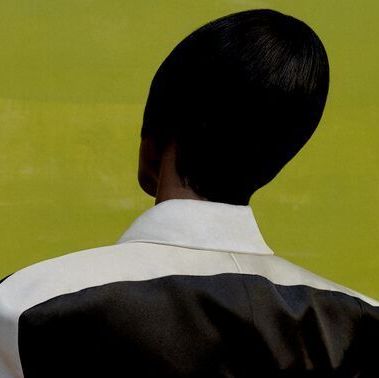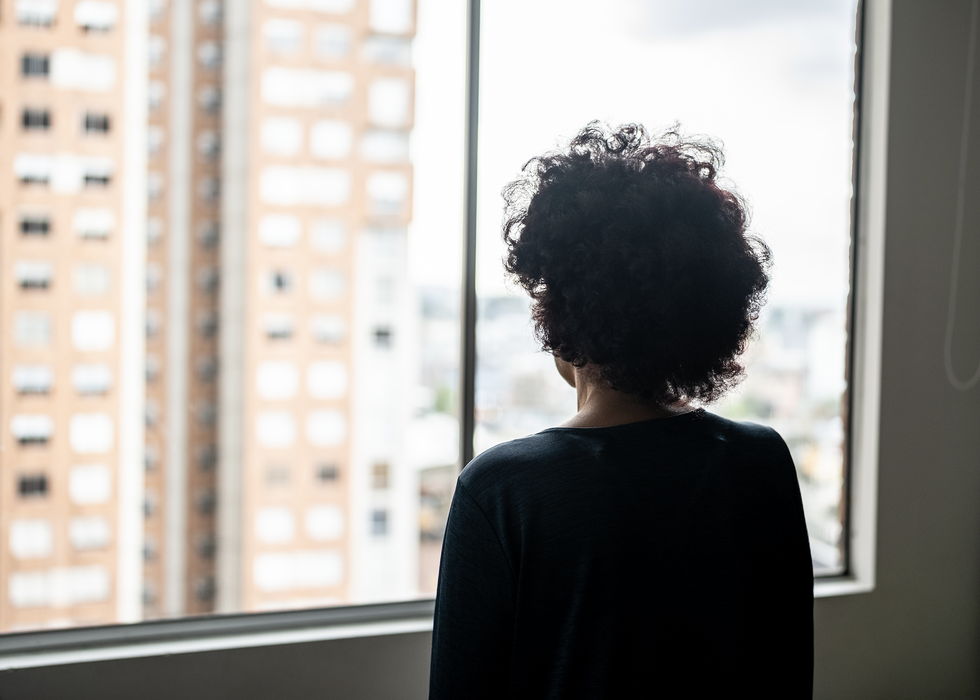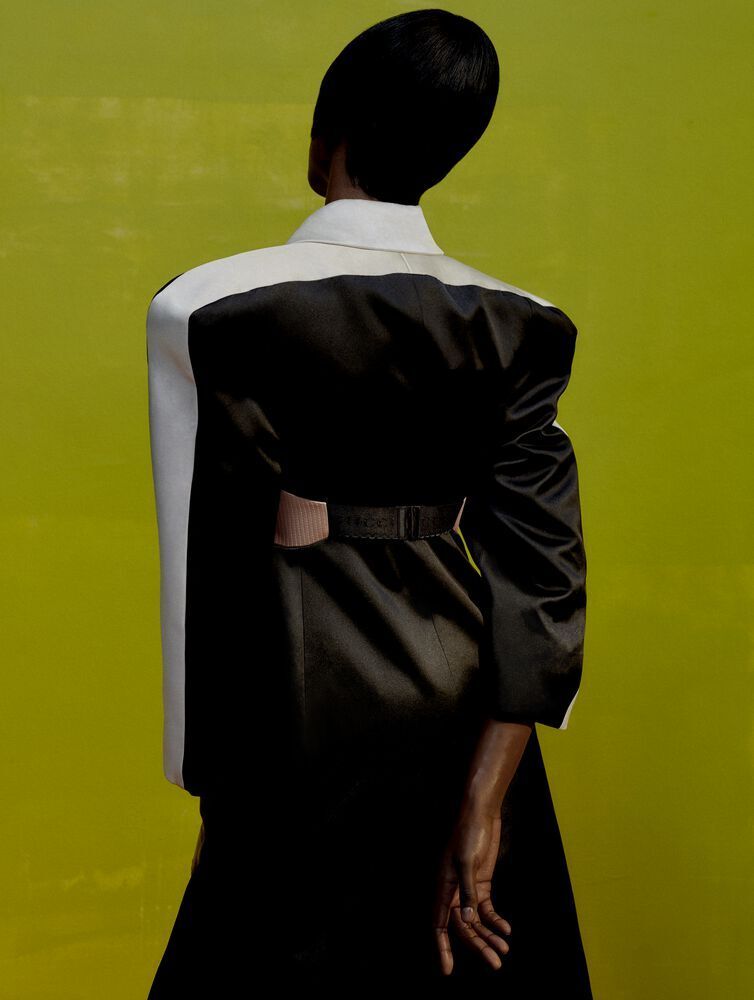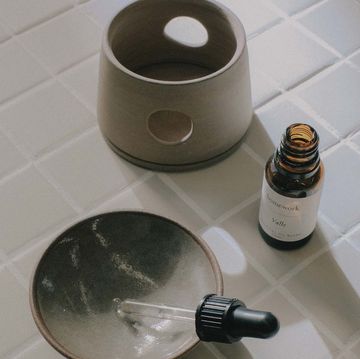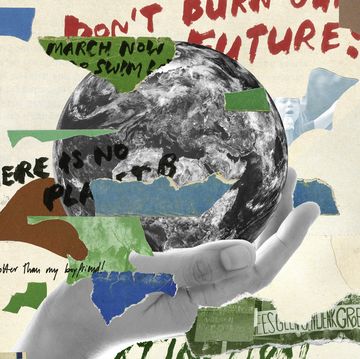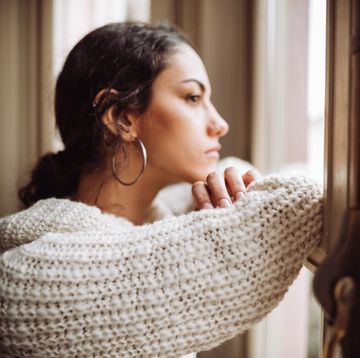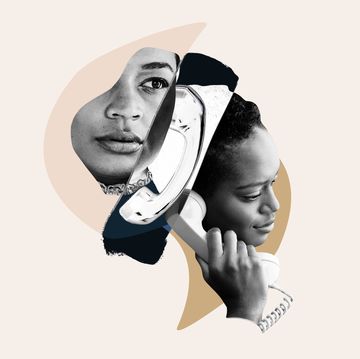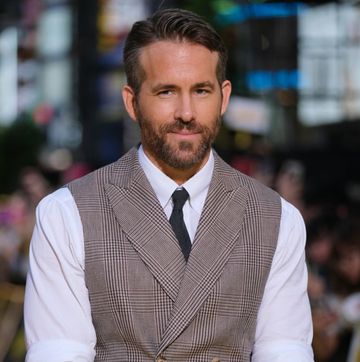What do you call a light-bulb moment when it's telling you you’re not okay? I had mine sitting on the bus near Peckham Rye, 12 years ago. I felt no different from my usual 25-year-old self, staring out at the scenery. But with each passing road, I began to feel as if I were watching it all from outside of myself. I became aware of my own thoughts, observing them as they raced past each other in a chaotic mess. A voice in my head said, ‘It feels so unhappy to be inside of me.’ I spent the next few months trying to figure out who the woman speaking these words was, and how I could make peace with her.
That bus ride made me realise I wanted to be rid of the persistent sadness that had followed me around all my life, permeating my working hours as a telephone charity fundraising agent as well as my downtime. In Nigerian culture, mental health was usually talked about in dismissive or even abrasive terms. ‘What do you mean you feel depressed? Pray more! Have faith in God!’ my relatives would say. But that day in Peckham, I understood that, no matter how much I placed my trust in a higher power, I also needed tangible help.
Faith alone hadn’t helped me process the shame I carried after being sexually assaulted at the age of seven. It happened while I was in the care of a childminder. I had lost so much of my childhood as a result, and I didn’t want to lose my adulthood to the pain too. For most of my life, I had remained silent about what had happened to me, denying myself reflection or an outlet for my grief.
Initially, it was challenging to tell my loved ones I was in therapy, and to explain it wasn’t what they imagined. It’s not about attention-seeking or paying someone for friendship. I’m nearing my late thirties now and, looking back, I realise they were hesitant to support me because of their own fear and denial bubbling to the surface. While there has been some progress in conversations around mental health, seeking therapy is still considered taboo by many, and not just in Nigerian culture. It’s also historically only been an option for the wealthy, rather than something all people can take part in. What’s more, the British attitudes of maintaining a ‘stiff upper lip’ and remembering to ‘keep calm and carry on’ have prevailed.
But while private therapy is booming post-pandemic, it’s largely unregulated, which can make it harder to find the right therapist for you and make sure that confidentiality is guaranteed.
When I decided to self-refer for counselling through the NHS, it was with the hope that it could help me understand and heal from my pain. This was important, because I couldn’t afford private therapy but desperately needed it. As the eldest daughter in a Nigerian family, I felt an overwhelming pressure to hold things together for everyone else. I also hadn’t figured outa proper sense of self or where my career was going. I now liken that phase of my life to not having yet worked out how to put my proverbial oxygen mask on, yet still having the responsibility of helping everyone around me with theirs. Around that time twoof my closest friends had moved to different countries and were facing life-changing experiences of their own, so my support network felt far away. And no one in my family was equipped with the vocabulary to name their pain. We were all muddling through.The first therapist I was assigned, a white Italian doctor, did not work out. She had difficulty connecting to my unique experiences. Her persistent rejection of matters relevant to race, gender and their intersections meant that she couldn’t help me. I remember crying during our final meeting, feeling like I had made no progress after eight sessions together. When I look back on that time, I can see how systemic and institutional influences were at play, but also how important it is to find the right therapist.
In my case, it took a while. Sometimes, it’s the people closest to us who can be the greatest obstacles to seeking mental-health support. The blockades can come in the form of well-meaning assertions loved ones can make. My friends and family would often dismiss me, saying my problems could always be worse. Despite their judgement, I decided to persevere and try therapy again. This time, I asked for a Black female therapist, which the NHS complied with, but told me this was an unorthodox request to make. While race didn’t guarantee any kind of mutual understanding between us, I was willing to take the risk. I liked that she didn’t rush our sessions. She even continued to see me for a few weeks longer than the period we initially agreed on. Most importantly, our time together felt like a safe space where I could express my childhood experiences. Eventually, I reached a point where I had the emotional tools to go without it for a while.
As years passed, I was able to recognise when I needed therapy and was fortunate enough to have the financial means to seek it out. In 2018, after a miscarriage, I talked to someone to help process my loss. Because of my past experience with the NHS,I knew the area of expertise I needed to look out for was some-one who specialised in childhood sexual trauma. The therapistI found not only supported me during my pregnancy with my son but also helped me come to terms with a few other losses in my life.
That day on the bus, I made a decision to begin therapy. I worked with various professionals who acted as my command centre, guiding me and offering support as I explored the depths of myself. It was here that I encountered the stories that ultimately became part of my short-story collection. While sitting across from my therapist, Emma Radway-Bright, I wondered where she stored all the grief and emotions she took on from clients. Gradually, an image of a ‘Guardian of Grief’ emerged in my mind and formed the basis of my story, ‘Blue’. That day on the bus was a gateway not only into therapy but to a more open and expressive life.
‘Edge of Here’ by Kelechi Okafor is out now.
